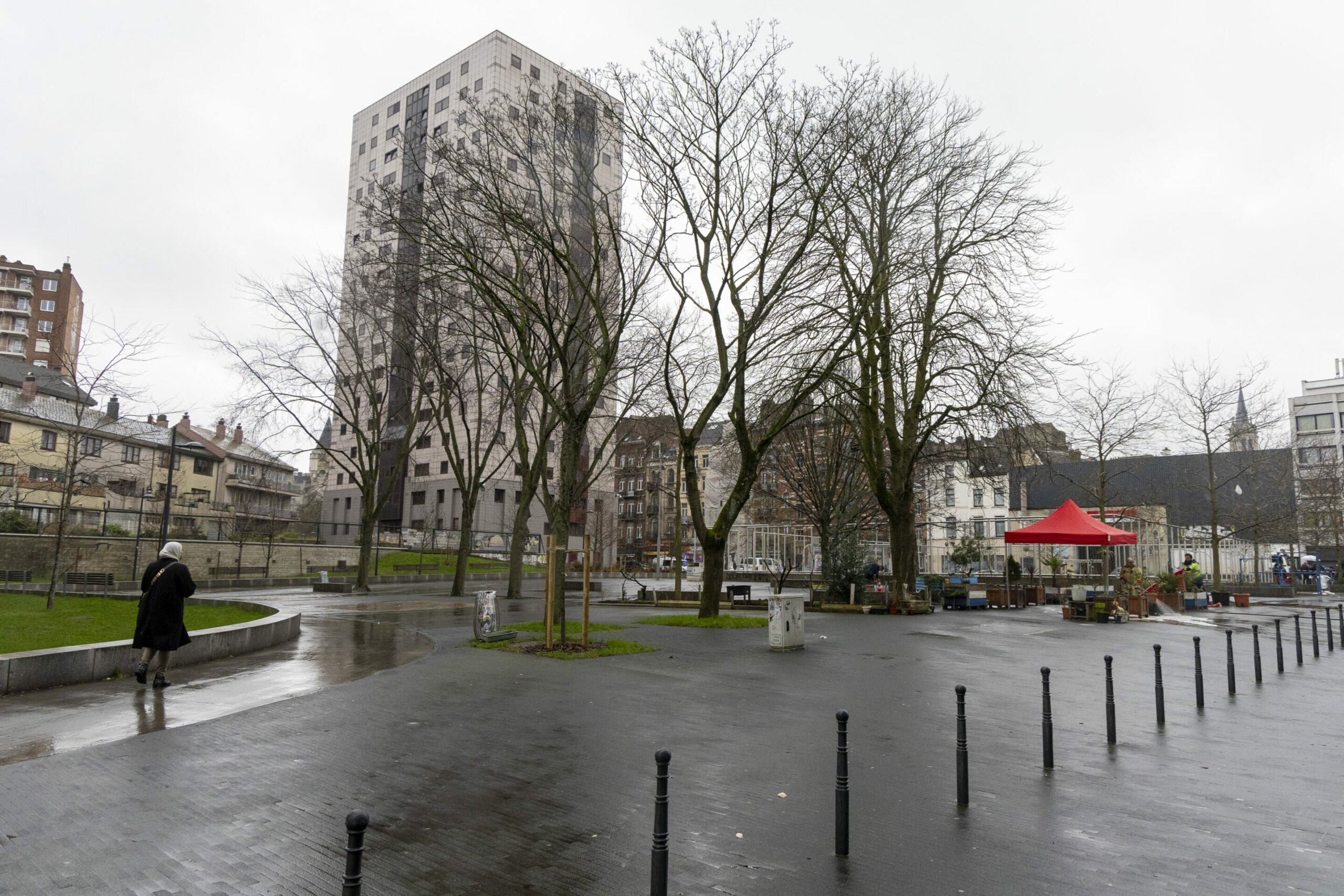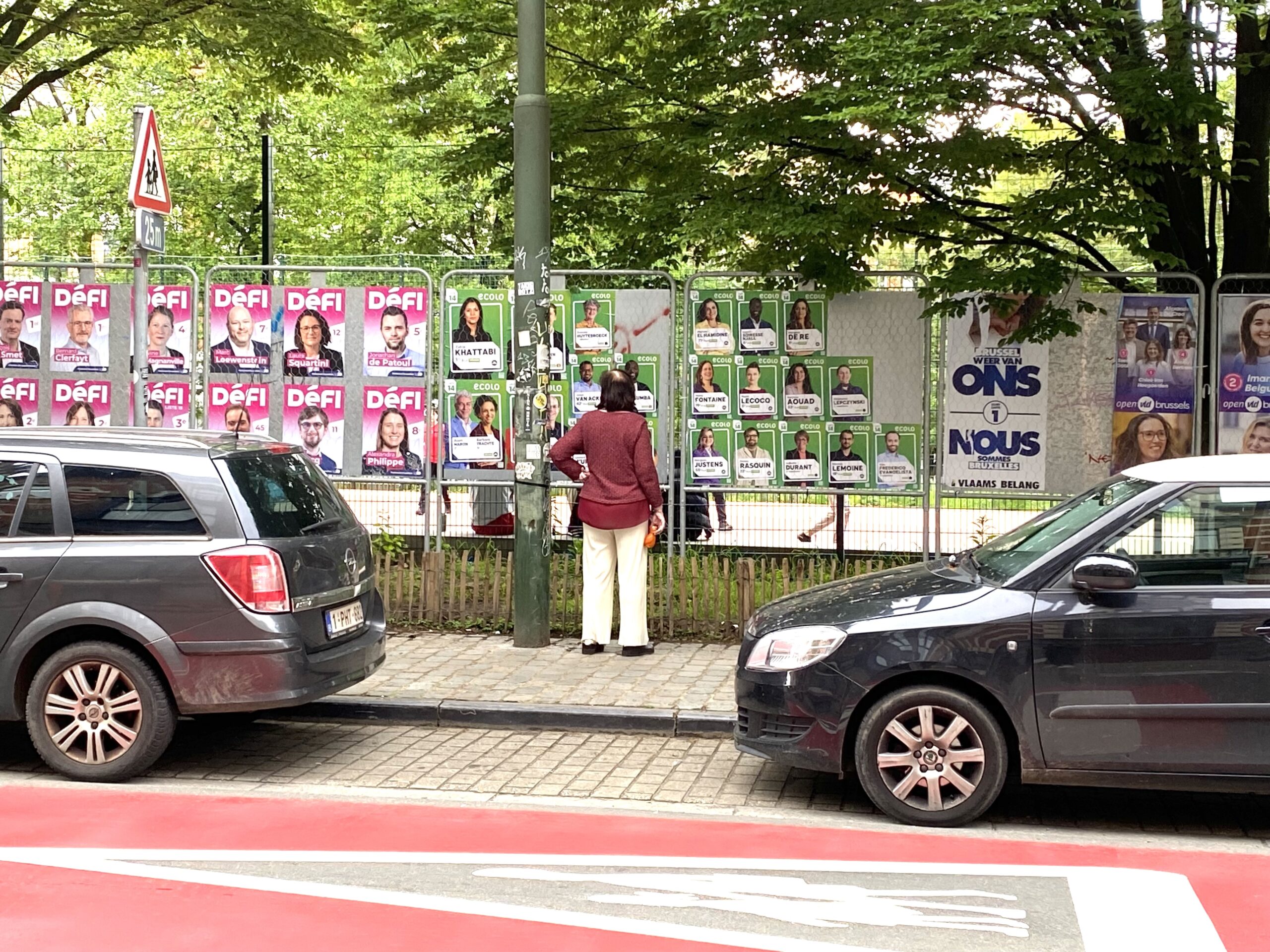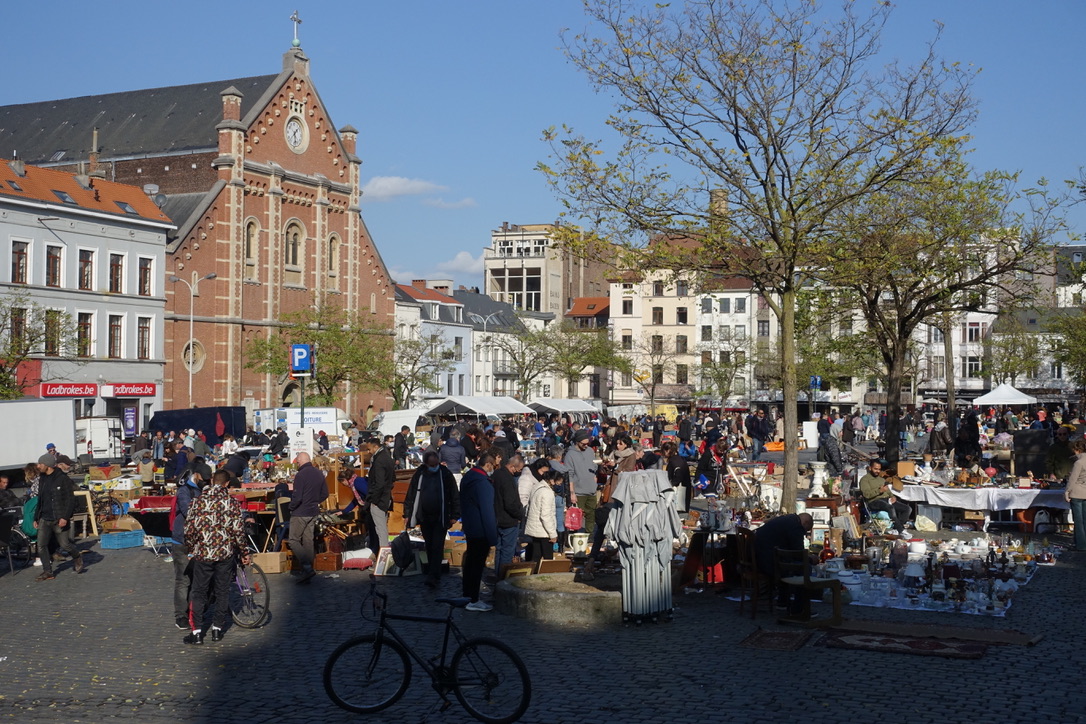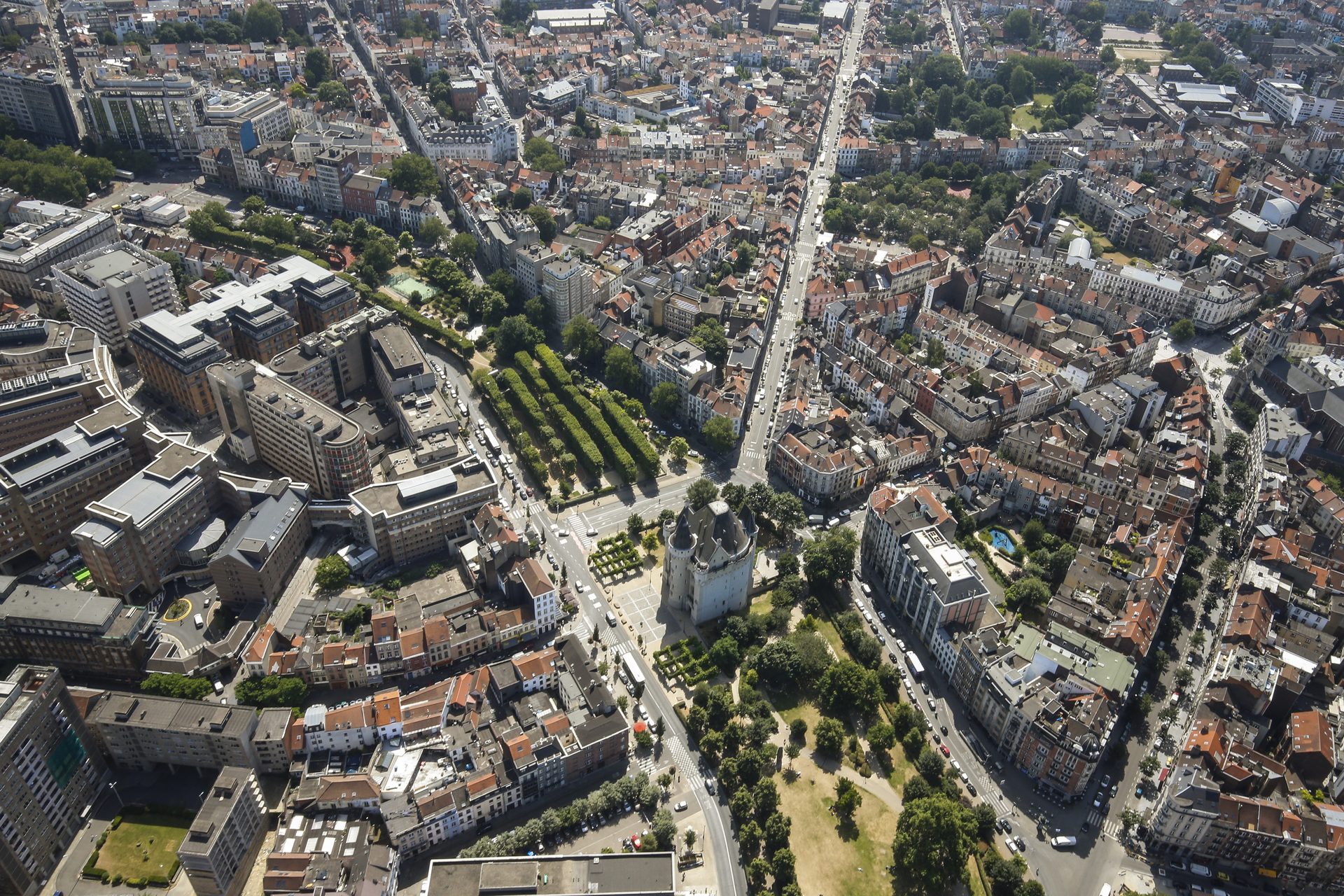Brussels has witnessed an explosion in public drug consumption as well as a string of violent drug-related incidents in recent months, especially around Porte de Hal, Marolles and Saint-Gilles. Less than two weeks before the country goes to vote in federal elections, citizens living and working in these areas have security concerns at the forefront of their minds. However, many of them expressed deep distrust of politicians when in conversation with The Brussels Times.
The Porte de Hal area experienced four shootings in just three days in early February, leaving several injured and one dead. These events added to a feeling of insecurity that was already nourished by rampant drug use in broad daylight and the social unrest it generates. Drug addicts resort to theft and crime in order to feed their habits and the frightening availability of substances like crack cocaine means that children as young as ten are taking drugs. The situation is weighing heavily on locals' minds as they weigh up their options ahead of the ballot on 9 June.
"Security is absolutely the number one issue, especially given the impact of the situation on young people," says Nicolas, who works in a restaurant next to Porte de Hal. "Before work, before education, before anything else. A hit of crack cocaine only costs €5-10, so even kids are able to buy it. When I was ten we used our money to buy cigarettes."

Square Jacques Franck, where one person was shot and killed on 14 February 2024. Credit: Belga / Nicolas Maeterlinck
Ahmed is a talkative regular in the same restaurant. He agrees that security is a number one priority for voters and says the community has called on the municipality to reinstall the Commissariat at Square Jacques-Franck (the site of two shootings in February) "multiple times."
"Ask anybody around here and that is what they want," he told The Brussels Times. "It is dangerous here; there are knife attacks every day. We need a greater police presence. People are afraid."
Who speaks for the people?
When asked about political parties and their specific proposals, the cynicism in the room is palpable. "Whether they are left or right wing, political parties do not care about working class areas," says Ahmed. "They all come canvassing here; we know all of them. But they will all disappear after the elections."
However, the two men are adamant that one thing is for sure: Écolo will "make a killing" in votes, and along with the Belgian Worker's Party (PTB) to rise above the rest.
This view does not quite reflect the latest Ipsos poll conducted in collaboration with Le Soir, RTL Info, Het Laatste Nieuws and VTM. In French-speaking Brussels, Francophone liberals Mouvement Réformateur (MR) made unprecedented gains, coming first with 23.3% of intentions to vote. PTB came second with 19.8%, the Socialist Party (15.2%) came third, and support for Écolo declined sharply with 12.5% in fourth place.

A women observes election candidate posters in Saint-Gilles, May 2024. Credit: The Brussels Times
What are Francophone parties offering in way of security proposals? Every party wants to allocate more resources to both the police and the justice system. MR wants to improve work and pay conditions for officers, punish drug users more severely and accelerate the time it takes to hand down sentences. The party also wants to expel non-Belgian nationals to serve their prison sentences in their country of origin.
Meanwhile, PS advocates for the creation of more drug consumption rooms (where addicts living precariously can take drugs under supervision) and focuses on improving working conditions within the judiciary. DéFI emphasises improving the judiciary while Les Engagés wants to recruit 3,684 additional police and advocates for alternative punishments to prison. Écolo and PTB echo this last point. Both parties also want prisons to be split up into smaller centres with more humane conditions. Écolo is the only party to call for a fusion of Brussels police zones.
MR party leader Georges-Louis Bouchez was criticised from all angles in March when he suggested that the army should be deployed to deal with drug addicts consuming in public spaces. Largely perceived as a performative, inappropriate and ineffective suggestion by political opponents and social sector workers alike, the idea of having the army on the streets resonates with some disenchanted locals.
'Elections won't change anything'
Caroline opened a bakery close to Porte de Hal 46 years ago and finds the deteriorating quality of life in Brussels extremely frustrating. She is in favour of deploying the army simply because Brussels police do not have the resources to cope with crime in the city.
"I love it here, but people are becoming so aggressive," she told The Brussels Times. "Sometimes I want to leave the city but I think I would miss it too much. We are doing okay but there is a lot of misery here. There are shootings all the time, people sleeping on the street [...] at the moment it isn't so bad but there are still problems."
Caroline is one of many Marolles residents who admitted to having zero faith in politicians. A huge proportion of business owners on and around Place du Jeu de Balle refused to discuss politics, saying the elections would do nothing to resolve the mounting problems they face, notably regarding security and crime. "Politicians only care about filling their own pockets", "elections won't change anything" and other phrases of the same colour peppered the majority of those conversations.
Omar lives in the heart of Marolles and believes security issues are intrinsically linked to unemployment. "The people robbing shops and breaking the law are unemployed," he says. "You have to push people to work, like they do in Flanders." He refers to the Flemish region as the "lung" of Belgium for its stringent approach to unemployment benefits and says the Brussels-Capital Region should follow suit. "We need more money, more jobs and more training. Young people here are feeling hopeless and it's getting worse and worse."
Middle versus working class
Marolles has become a blended area of working classes and gentrified businesses, and the two cohorts' diverging opinions are notable when it comes to the divisive issue of the Good Move plan.
The landmark mobility policy aims to reduce congestion in the city centre in service of the climate, and while more privileged population sections laud its environmental credentials, working-class communities denounce the attempt to cut the car out of the city centre.
Flora works in a shop on Rue Haute and acknowledges that "people working on Place de Jeu de Balle are annoyed because they can no longer reach the square by car, but I think encouraging public transport use, walking and cycling is a good thing." Meanwhile, Caroline and Omar dismiss the Good Move plan for its unworkable aims.

Place du Jeu de Balle. Credit: Orlando Whitehead
All of the individuals featured in this article expressed sadness at the situation in Gaza but the crisis will not impact every vote to the same extent. "The conflict is far away from us," said Ahmed. "The weekly demonstrations at Place de Bethléem will do nothing to change it."
"It is a terrible situation," says Caroline. "Belgium's position is fair, and the recognition of Palestine was a good thing but what will it change on the ground?"
"We must put an end to genocide," says Flora, who does not see her own views reflected in any party manifesto but will make a decision and exercise her vote on 9 June nonetheless.
Some names have been changed at the request of interviewees.

